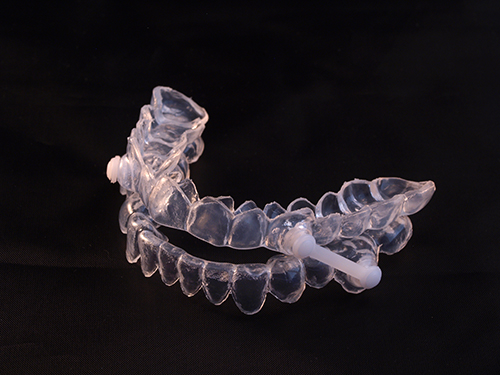A good night’s sleep is essential for overall well-being. It allows the body to rest, repair, and rejuvenate. However, for millions of people worldwide, this vital process is disrupted by a condition known as sleep apnea. This disorder causes interrupted breathing during sleep, sometimes hundreds of times a night leading to fragmented sleep and reduced oxygen flow to vital organs. While many consider snoring or poor sleep quality as minor inconveniences, untreated sleep apnea can have serious and lasting effects on your health.
Let’s see what sleep apnea is, its main types, and how it can contribute to severe health problems if left untreated.
Understanding Sleep Apnea
Sleep apnea is a sleep disorder characterized by repeated pauses in breathing during sleep. These pauses can last anywhere from a few seconds to more than a minute and can occur multiple times throughout the night.
The two main types are:
Obstructive Sleep Apnea (OSA): The most common type, caused when the throat muscles relax excessively, blocking the airway.
Central Sleep Apnea (CSA): Less common, where the brain fails to send proper signals to the muscles that control breathing.
Many individuals with sleep apnea are unaware of their condition since the episodes happen while asleep. Common symptoms include loud snoring, choking or gasping for air during sleep, morning headaches, daytime fatigue, poor concentration, and irritability.
1. Cardiovascular Problems

One of the most significant dangers of untreated sleep apnea lies in its impact on the cardiovascular system. Every time breathing stops, oxygen levels in the blood drop. This triggers the brain to send stress signals, causing a surge in blood pressure and heart rate to restart breathing.
Over time, these repetitive stress responses put excessive strain on the heart and blood vessels, leading to conditions such as:
- High blood pressure (hypertension)
- Irregular heartbeat (arrhythmia)
- Heart attack
- Heart failure
- Stroke
Studies have shown that people with moderate to severe sleep apnea are two to three times more likely to develop cardiovascular disease than those without the disorder.
2. Diabetes and Metabolic Disorders
Sleep apnea is closely linked to type 2 diabetes and metabolic syndrome. Interrupted sleep interferes with the body’s ability to regulate glucose and insulin levels. Additionally, oxygen deprivation can cause insulin resistance, where the body becomes less effective at using insulin to control blood sugar.
Lack of restorative sleep also alters hormones that control appetite, increasing cravings for sugary and high-calorie foods contributing to weight gain and obesity, which in turn worsen sleep apnea. This creates a harmful cycle that can be difficult to break without medical intervention.
3. Mental Health Issues

Sleep is essential for emotional regulation and cognitive performance. Chronic sleep deprivation caused by sleep apnea can lead to mood disturbances, memory problems, and difficulty concentrating. Many patients report feeling constantly tired, anxious, or depressed.
Research has shown a strong connection between sleep apnea and depression, with oxygen deprivation and disrupted REM sleep contributing to chemical imbalances in the brain. Over time, untreated sleep apnea can increase the risk of developing chronic depression, anxiety disorders, and even cognitive decline in older adults.
4. Weakened Immune System
During sleep, the body strengthens its immune system by producing cytokines proteins that help fight infection and inflammation. Repeated sleep disruptions reduce cytokine production, making the body more susceptible to illnesses such as colds, flu, and infections.
In the long run, poor immune function can slow down recovery from diseases and surgical procedures, further affecting overall health.
5. Liver and Kidney Damage

People with sleep apnea often show abnormal results in liver function tests, indicating non-alcoholic fatty liver disease (NAFLD) or liver inflammation. The constant oxygen deprivation stresses the liver and impairs its ability to filter toxins effectively.
Similarly, reduced oxygen flow can impact kidney function, leading to chronic kidney disease or worsening existing kidney conditions.
6. Increased Risk of Accidents
Daytime sleepiness and fatigue are common in those with untreated sleep apnea. This drowsiness significantly increases the risk of workplace injuries and motor vehicle accidents. In fact, studies suggest that individuals with severe sleep apnea are up to seven times more likely to be involved in a road accident due to delayed reaction times and impaired alertness.
7. Complications During Surgery and Anesthesia
Sleep apnea can pose additional risks during surgical procedures. Sedatives, anesthesia, and pain medications can relax the throat muscles further, increasing the likelihood of airway obstruction. Patients with undiagnosed sleep apnea may experience breathing difficulties during and after surgery, emphasizing the importance of notifying your doctor or dentist before undergoing any procedure.
Diagnosis and Treatment

The first step in managing sleep apnea is obtaining a proper diagnosis from an ENT specialist. The ENT team and orthodontists collaborate closely to evaluate the condition. Once diagnosed, treatment options are tailored based on the severity and underlying cause of the sleep apnea.
Common treatments may include:
- Lifestyle changes like weight management, avoiding alcohol and smoking, and sleeping on one’s side.
- Continuous Positive Airway Pressure (CPAP): Usage of a machine that delivers air pressure through a mask to keep airways open during sleep.
- Oral appliance therapy: Custom-made dental devices that reposition the jaw and tongue to prevent airway obstruction.
- Surgery: In severe cases, surgical interventions can remove or reposition tissues blocking the airway.
Dentists trained in sleep apnea management play a crucial role in identifying early symptoms and offering effective oral appliance solutions.
Sleep apnea is far more than just loud snoring, it is a serious medical condition that can lead to life-threatening health problems if left untreated. From heart disease and diabetes to depression and liver issues, the effects of poor-quality sleep ripple throughout the body.
If you suspect you or a loved one might have sleep apnea, don’t ignore the warning signs. Contact today at 800777000 to book an appointment with our dental professionals at Go Dental Clinics who are experienced in sleep-related breathing disorders. With timely diagnosis and the right treatment, you can restore healthy sleep, improve your quality of life, and protect your long-term health.



